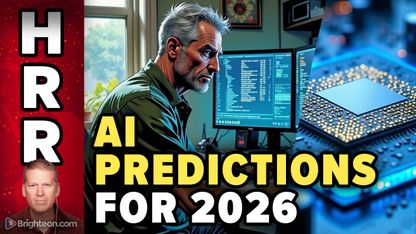
The car maker is working alongside Michigan Medicine to develop a technology that would allow cars to accurately predict if a driver is going to have a heart attack while behind the wheel. The car feature would then try to bring the vehicle to a safe-stop. While the technology is still under development, Toyota hopes to have preliminary results by 2020.
Roads are risky enough of a place with people texting or eating while driving but another thing that makes driving even scarier is the fact that there are a growing number of people who experience heart attacks while driving. According to data from one study, cardiovascular and neurological conditions are the most common causes of attacks while driving. Both of these are also found to be related to at least eight percent of fatal motor vehicle accidents.
“Toyota discussed how they wanted to move towards technology that can monitor and analyze the physiology of the person driving and predict if they are going to have adverse cardiac events,” said Dr. Kayvan Najarian, lead author of the study.
They carried out an initial study over the course of seven months and were able to identify the challenges they would face as well as the potential solutions. They found that they needed a high-quality monitoring device that was not too large or obstructive and one that would be able to detect small changes in heart rhythms accurately but could also separate outside noise. (Related: 7 Chest Pains Often Mistaken for A Heart Attack)
The team is currently working on designing a system that can fit inside a vehicle and accurately monitor and foresee a cardiac event. “We would like to test hardware we had previously identified, and improve and validate our algorithmic solutions to see what it will take to generate a system that could look at the physiology of a person, provided by high-density electrocardiogram (ECG) measurements, as well as other medical measurements,” Dr. Najarian further added.
They then decided to use monitoring patches that would be worn on the chest. These patches would be small enough to be inserted inside seat belts. They would need to gather physiological data from the driver before testing algorithmic and hardware options. The researchers should be able to have the data they need by 2020.
Since people are driving well into their older years, you can expect more people to be behind the wheel. However, these people are more likely to experience cardiac arrest. According to the Centers for Disease Control (CDC), heart disease is the most common cause of death for both men and women in North America. Based on that data, it seems logical that more people experience heart attacks no matter where they are, like while on the road.
“When we analyzed crash statistics already reported by different agencies, we found that drivers 65 years of age and older have a lot of medical-related issues that are related to vehicle crashes. We can infer from that information that there could be a higher number of crashes in the future as the population is aging,” Dr. Narajian stated.
This makes technology like the one Toyota is working on all the more important not just for the drivers themselves but for other people who share the same road.
Sources include:
Please contact us for more information.

















